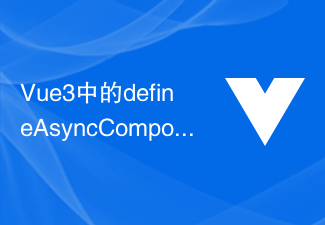
Key strategies and techniques to improve website performance
Abstract: With the rapid development of the Internet, website users have increasingly higher requirements for web page access speed. This article will introduce some key strategies and techniques to help improve website performance and improve user experience.
1. Compressed files and pictures
The size of files and pictures directly affects the loading speed of web pages. Therefore, using a compression tool to compress all files on your website is a very important strategy. Compressed files can reduce download time and improve web page loading speed. In addition, using appropriate image formats and sizes can further reduce file size and improve website performance.
2. Use caching
Caching is one of the key strategies to improve website performance. Caching the static resources of the website (such as style sheets, script files, pictures, etc.) in the user's browser can reduce the number of server requests and improve the loading speed of web pages. In addition, the use of CDN (content distribution network) can also distribute the static resources of the website to all parts of the world, closer to users and speeding up access.
3. Merge and compress files
Merging multiple CSS files and JS files into one file and compressing the file size is an effective strategy to improve website performance. Merging files reduces HTTP requests, while compressing files reduces file size, making your website load faster. At the same time, pay attention to the loading order of files, ensure that dependencies are correct, and avoid errors on the web page.
4. Optimizing database queries
Optimizing database queries is one of the important strategies to improve website performance. By using technologies such as indexing and avoiding full table scans, the query speed of the database can be accelerated and the response time of the web page can be improved. In addition, rationally designing the database structure to avoid redundant data and multiple queries can also improve website performance.
5. Compress response data
Compressing the response data of the website can reduce the file size and improve the efficiency of data transmission. The server can use compression algorithms such as Gzip or Deflate to compress the response data before sending it to the user, thereby reducing transmission time and improving website performance.
6. Reduce HTTP requests
The loading speed of web pages is related to the number of HTTP requests. Reducing HTTP requests is one of the key strategies to improve website performance. You can improve the loading speed and performance of web pages by reducing HTTP requests by merging files, using techniques such as CSS Sprites, delayed loading, and lazy loading.
7. Use asynchronous loading
Using asynchronous loading can delay the loading of certain elements of the web page, thus improving the loading speed of the web page. By placing the script file at the bottom of the page and using defer and async attributes, you can reduce the factors that affect the loading of the first screen and improve the performance of the website.
Conclusion: Through the above key strategies and techniques, the website can effectively improve performance and user experience. But it needs to be adjusted and optimized according to the specific situation. Only by constantly paying attention to and adapting to the rapidly developing Internet technology can we better improve website performance and meet user needs.
The above is the detailed content of Key methods and techniques for optimizing website performance. For more information, please follow other related articles on the PHP Chinese website!
 揭露Ajax异常,解决错误的方法一览Jan 30, 2024 am 08:33 AM
揭露Ajax异常,解决错误的方法一览Jan 30, 2024 am 08:33 AMAjax异常大揭秘,如何应对各种错误,需要具体代码示例2019年,前端开发已经成为互联网行业中不可忽视的重要岗位。而Ajax作为前端开发中最常用的技术之一,能够实现页面异步加载和数据交互,其重要性不言而喻。然而,使用Ajax技术时经常会遇到各种错误和异常,如何应对这些错误是每一位前端开发者必须面对的问题。一、网络错误在使用Ajax发送请求时,最常见的错误就是
 有效应对jQuery .val()不起作用的情势Feb 20, 2024 pm 09:36 PM
有效应对jQuery .val()不起作用的情势Feb 20, 2024 pm 09:36 PM标题:解决jQuery.val()不起作用的方法及代码示例在前端开发中,经常会使用到jQuery来操作页面元素。其中,获取或设置表单元素的值是常见的操作之一。通常,我们会使用jQuery的.val()方法来实现对表单元素值的操作。然而,有时候会遇到jQuery.val()不起作用的情况,这可能会导致一些问题。本文将介绍如何有效应对jQuery.val(
 Scrapy基于Ajax异步加载实现方法Jun 22, 2023 pm 11:09 PM
Scrapy基于Ajax异步加载实现方法Jun 22, 2023 pm 11:09 PMScrapy是一个开源的Python爬虫框架,它可以快速高效地从网站上获取数据。然而,很多网站采用了Ajax异步加载技术,使得Scrapy无法直接获取数据。本文将介绍基于Ajax异步加载的Scrapy实现方法。一、Ajax异步加载原理Ajax异步加载:在传统的页面加载方式中,浏览器发送请求到服务器后,必须等待服务器返回响应并将页面全部加载完毕才能进行下一步操
 Vue3中的suspense函数详解:优化异步数据加载Jun 18, 2023 am 08:10 AM
Vue3中的suspense函数详解:优化异步数据加载Jun 18, 2023 am 08:10 AMVue3中的suspense函数详解:优化异步数据加载在现代网站和应用程序中,异步数据加载是必不可少的。但是,由于网络连接速度的不稳定性,异步数据加载可能导致用户界面的延迟和卡顿。为了解决这个问题,Vue3引入了一个新的suspense函数来优化异步数据加载。suspense函数是Vue3中的一个新特性,它允许您在异步加载数据时展示一个加载中的UI,直到异步
 Vue3中的defineAsyncComponent函数详解:异步加载组件的应用Jun 18, 2023 pm 07:39 PM
Vue3中的defineAsyncComponent函数详解:异步加载组件的应用Jun 18, 2023 pm 07:39 PMVue3中的defineAsyncComponent函数详解:异步加载组件的应用在Vue3中,我们经常会遇到异步加载组件的需求。这时我们就可以使用Vue3提供的defineAsyncComponent函数来实现异步加载组件的功能。本文将详细介绍Vue3中defineAsyncComponent函数的用法和应用场景。一、defineAsyncComponent
 提升网站速度的关键优化模式,每个前端开发者都必须掌握!Feb 02, 2024 pm 05:36 PM
提升网站速度的关键优化模式,每个前端开发者都必须掌握!Feb 02, 2024 pm 05:36 PM前端开发者必备:掌握这些优化模式,让网站飞起来!随着互联网的快速发展,网站已经成为企业宣传和交流的重要渠道之一。一个性能优良、加载迅速的网站不仅可以提升用户体验,还可以吸引更多的访问者。作为一名前端开发者,掌握一些优化模式是必不可少的。本文将介绍一些常用的前端优化技术,帮助开发者更好地优化网站。压缩文件在网站开发中,经常使用的文件类型包括HTML、CSS和J
 Vue3中的defineAsyncComponent函数:异步加载组件Jun 18, 2023 am 10:57 AM
Vue3中的defineAsyncComponent函数:异步加载组件Jun 18, 2023 am 10:57 AMVue3是一个非常流行的前端框架,它将组件化思想带入到前端开发中,使得开发者能够更快速、更高效地构建复杂的应用程序。在Vue3中,我们经常会使用组件来构建页面,并且使用大量的第三方组件库来扩展我们的功能。但是,加载多个组件可能会导致应用程序的启动速度变慢,这就是为什么我们需要异步加载组件。在Vue3中,提供了一个函数叫做defineAsyncComponen
 揭秘网站性能优化:掌握这些方法,让你的网站速度飞升!Feb 03, 2024 am 08:00 AM
揭秘网站性能优化:掌握这些方法,让你的网站速度飞升!Feb 03, 2024 am 08:00 AM网站性能优化大揭秘:掌握这些方式,让你的网站飞起来!随着互联网的快速发展,网站已经成为企业宣传、产品展示和交流互动的重要渠道。然而,当用户访问网站时,如果加载速度过慢、响应时间过长,用户体验将会大打折扣,甚至可能直接导致用户离开。因此,网站性能优化变得越来越重要。那么,什么是网站性能优化呢?简单来说,网站性能优化是通过一系列的方式和技术手段,提升网站的加载速


Hot AI Tools

Undresser.AI Undress
AI-powered app for creating realistic nude photos

AI Clothes Remover
Online AI tool for removing clothes from photos.

Undress AI Tool
Undress images for free

Clothoff.io
AI clothes remover

AI Hentai Generator
Generate AI Hentai for free.

Hot Article

Hot Tools

Dreamweaver Mac version
Visual web development tools

MantisBT
Mantis is an easy-to-deploy web-based defect tracking tool designed to aid in product defect tracking. It requires PHP, MySQL and a web server. Check out our demo and hosting services.

PhpStorm Mac version
The latest (2018.2.1) professional PHP integrated development tool

SublimeText3 Chinese version
Chinese version, very easy to use

mPDF
mPDF is a PHP library that can generate PDF files from UTF-8 encoded HTML. The original author, Ian Back, wrote mPDF to output PDF files "on the fly" from his website and handle different languages. It is slower than original scripts like HTML2FPDF and produces larger files when using Unicode fonts, but supports CSS styles etc. and has a lot of enhancements. Supports almost all languages, including RTL (Arabic and Hebrew) and CJK (Chinese, Japanese and Korean). Supports nested block-level elements (such as P, DIV),






